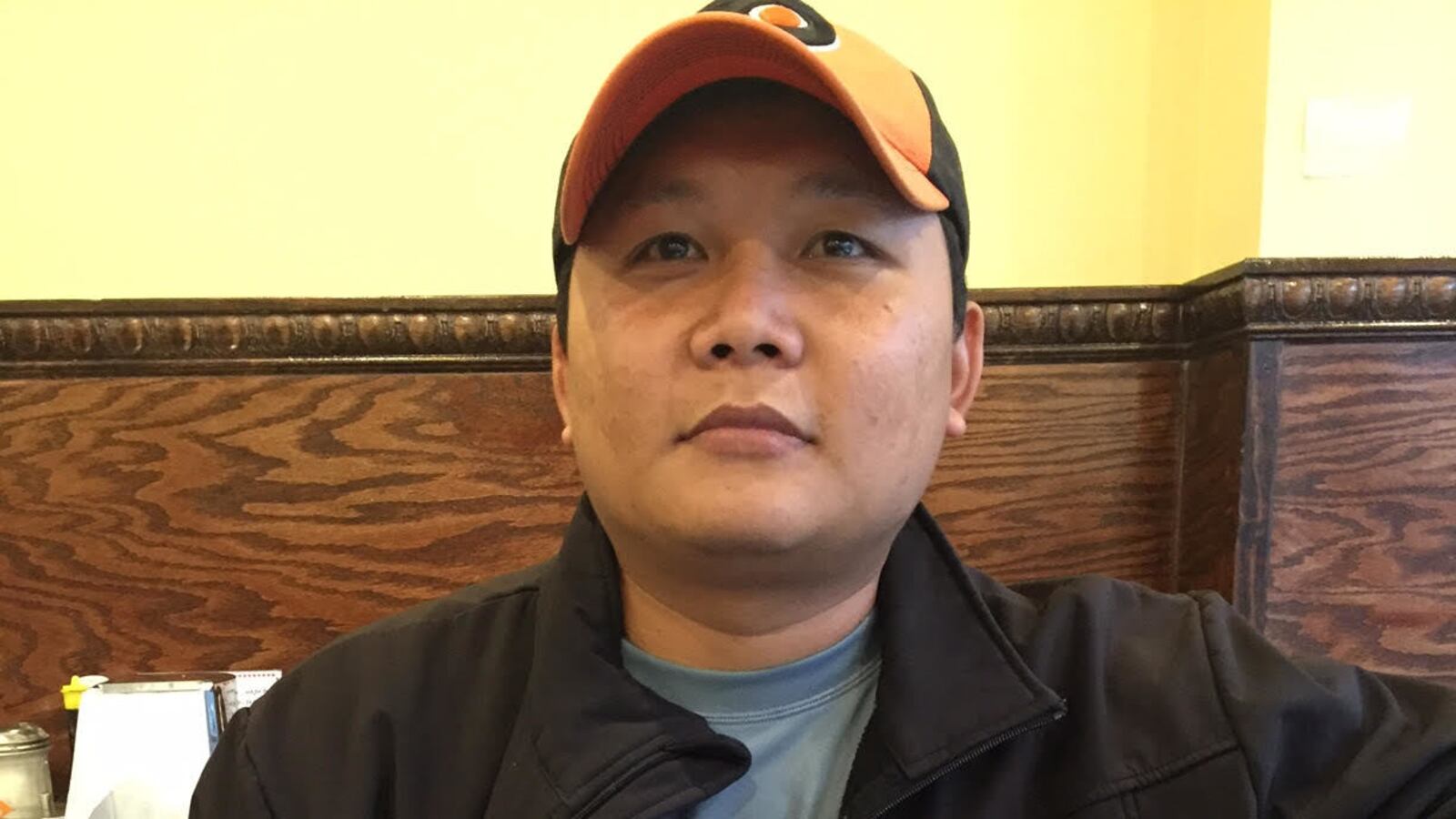This article was originally published in The Notebook. In August 2020, The Notebook became Chalkbeat Philadelphia.
By definition, an English learner comes from a family in which another language is spoken at home. The District’s bilingual counseling assistants, or BCAs, extend a lifeline to these families.
“It’s like a social work job. There are so many new immigrants, and they are so needy,” said Lidia Udowenko, who has been a BCA for eight years.
Collectively, the 57 BCAs working for the School District speak 36 languages, from Albanian to Vietnamese. Twenty speak Spanish, and eight are Chinese, some of whom speak both Cantonese and Mandarin.
Some, such as Dai Htoo, a member of the Karen community in Burma, have been refugees themselves. Others, such as Justin Dorsey, are native Philadelphians. Dorsey learned Arabic when he converted to Islam, and now he is one of six Arabic-speaking BCAs.
“The beauty of the BCAs are that they are a group of individuals who are immigrants or refugees or first generation who, on a visceral level, know the experience of becoming a new American,” said Ludy Soderman, who manages the BCAs in the District’s Multilingual Family Support Office. “Acquiring a new language is not new to them. They know something about sitting in that classroom that many of us don’t know. They have roots in neighborhoods.”
Udowenko, who now works at Franklin Learning Center and South Philadelphia High School, came to the United States from Argentina in 1974, when she was 19. She knows how it feels to start anew in a strange place.
“You are trying to help them establish in this new country,” she said of the families she works with. “They feel like the school is their home, their family, where they can go and ask, ‘Where do I go for an apartment, or get a job?’ Families of students ask that.”
Her role is “not just helping the student to do their homework or get a uniform. It extends to everyday life.”
They teach parents how to use public transportation, but a parent can panic if a bus is late. She gives out her cell phone number.
“It’s not easy for those parents. They are all in different situations,” Udowenko said. “Every kid has a story, especially the new immigrants.”
To those who come here when they are older – some are 18 or 19, but have only a 3rd-grade education – Udowenko tells them she also came here as a teenager.
The BCAs also are expected to provide interpretation and translation services. When a BCA works in more than one school, “sometimes there is nobody available,” she said.
Despite the need, school support workers, including BCAs, are frequent targets of budget cuts. For instance, before 2011, when education aid to Philadelphia was slashed under former Gov. Tom Corbett, there were 102 BCAs, nearly twice as many as now.
Dorsey, who grew up in West Philadelphia, learned Arabic in Saudi Arabia. He has been a BCA for about 10 years and now works in Northeast High and Solis-Cohen Elementary School with a diverse group of students, including Syrians, Jordanians, Sudanese, Palestinians, and occasionally a Saudi.
“I spend a lot of time talking through with them what they want for a future,” he said.
He also helps with practical issues, like signing up for low-cost internet and getting students bus passes. He deals with cultural misunderstandings, bullying, and applying to college. He has talked students out of dropping out, including one who was the family’s main breadwinner.
“He was actually going to turn 21. He worked at night to take care of his father. He had a difficult time with school and his work schedule,” Dorsey said. “The staff discussed how we could help him. I talked to him a lot, we got him tutoring, and he made it.”
Htoo’s Karen community has been in civil war with the leaders of Burma, also called Myanmar, since 1949, seeking their own independent state. Htoo’s father was killed in the hostilities when Htoo was 10 months old.
When he was a child, troops would come and tear his village apart every summer. He and his family moved to a refugee camp in Thailand when he was 10. There, he endured harsh living conditions, limited education, and no hope for a future, Htoo said.
He remembers the date he came to the United States – Jan. 22, 2008. He and his family, which now includes three daughters, were helped by the Office of the United Nations High Commissioner for Human Rights. He is now a citizen.
“When I first applied to the U.S., I didn’t know anybody in this country,” he said. “We didn’t pick any destination.”
But Philadelphia had a growing Karen community. “We heard it is good for public transportation, jobs, a good place to resettle.”
The first thing he remembers is the supermarket. “I was born in the jungle and grew up in a village. You never get a chance to see a supermarket.”
He works now with about 90 Karen and Burmese students in Furness High and in Taggart Elementary School.
“We help the parents and student to have better communication with the school,” he said.
Most of the students he works with are refugees like he was. Since reduction in the District’s counselor ranks, Htoo has stepped in to do some of that work, helping students with college applications and financial aid forms.
As a BCA, he responds to what families ask for, but he also pushes them. Through the Southeast Asian Mutual Assistance Associations Coalition Inc., or SEAMAAC, he is helping to organize Karen youth.
“We wanted them to have a clear vision and goals for their future,” he said.
Htoo said that sometimes refugees and others who come to the United States don’t know what they have a right to ask for.
“They’re so used to having nothing, they don’t have anything to complain about,” he said. “We have been in a far worse situation.”


